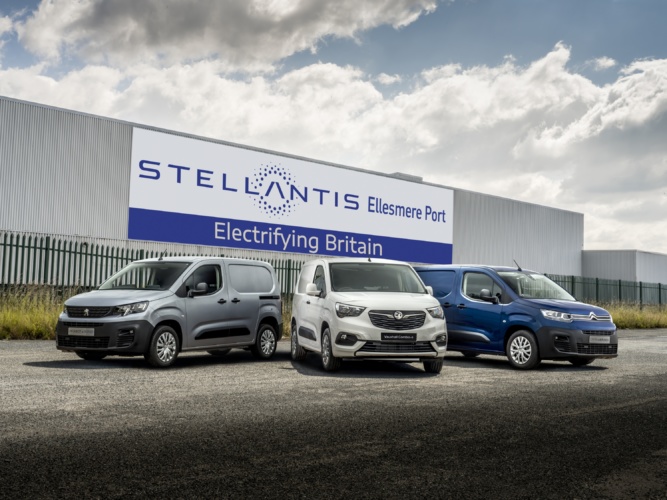EV investment secures future for Vauxhall's Ellesmere port plant
Vauxhall’s owner - automotive conglomerate Stellantis - has unveiled a bold £100 million plan to transform the company’s Ellesmere Port Site in Cheshire into a major electric vehicle manufacturing plant.

The future of the plant had been in doubt after Stellantis dropped plans to build the new Vauxhall Astra there, but the fresh investment - which will see the site adapted to produce battery-electric light commercial vehicles (LCV) and passenger vehicles for Vauxhall, Opel, Peugeot and Citroën – is expected to safeguard more than 1000 jobs at the factory and within the wider supply chain.
Commenting on the announcement Stellantis CEO Carlos Tavares said: “Performance is always the trigger for sustainability and this £100million investment demonstrates our commitment to the UK and to Ellesmere Port.,”
UK government Business secretary Kwasi Kwarteng added: “Ellesmere Port’s proud tradition in auto manufacturing will continue for many years to come thanks to today’s investment. Stellantis’ decision to double down on their commitment to this site is a clear vote of confidence in the UK as one of the best locations globally for competitive, high-quality automotive production.”
Register now to continue reading
Thanks for visiting The Engineer. You’ve now reached your monthly limit of news stories. Register for free to unlock unlimited access to all of our news coverage, as well as premium content including opinion, in-depth features and special reports.
Benefits of registering
-
In-depth insights and coverage of key emerging trends
-
Unrestricted access to special reports throughout the year
-
Daily technology news delivered straight to your inbox










UK Enters ‘Golden Age of Nuclear’
The delay (nearly 8 years) in getting approval for the Rolls-Royce SMR is most worrying. Signifies a torpid and expensive system that is quite onerous...